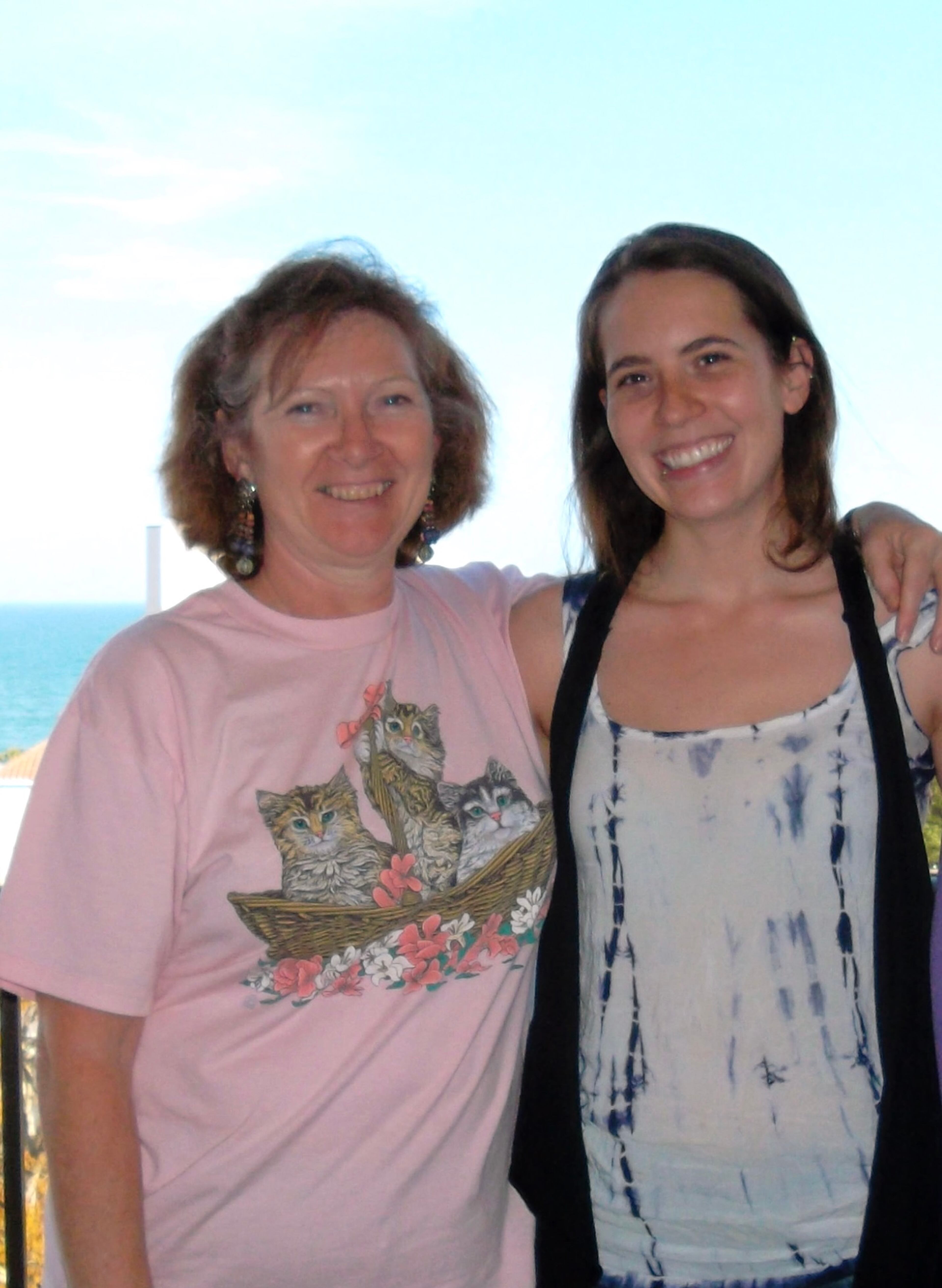Rosalynn Carter Institute changes name as it focuses more on caregivers
Jessica Mills was 19 and looking forward to four years at Georgia State University, then a career and family of her own.
A couple of years into her studies, though, Mills returned to Augusta to help care for her 50-year-old mom, Petra, who was diagnosed with an early form of dementia.
At first, she thought she could do both, but her advisers warned her that the disease was a progressive one and her mother’s condition would only deteriorate over time. They were right.
“She can’t be left alone and spends a lot of time in the hospital,” said Mills, who works part time in a doughnut shop after depleting her savings when she couldn’t work.
She gets to work at 5 a.m., which enables her to get back home to relieve her 66-year-old dad.
Her mother, now 61, needs constant attention. Mills doesn’t see or talk to friends as much as she used to. “Now it’s a lot more stressful.”
Mills, who turns 30 next year, found that support with the recently renamed Americus-based Rosalynn Carter Institute for Caregivers, which was founded in 1987.
It was previously named the Rosalynn Carter Institute for Caregiving.
The nonprofit, launched by the former first lady, has sharpened its focus to be better attuned to the needs of the estimated 53 million unpaid or informal family caregivers in the United States.
It was formerly a unit of Georgia Southwestern State University, but this year secured independent nonprofit status.
RCI remains affiliated with GSW.

“It’s been more than 80 years since my father and my grandmother died, forcing my mother to assume the role of primary caregiver for our family,” Carter said in a press release from RCI. “And while society has advanced markedly, little has changed for our nation’s unpaid family caregivers. For most, it is a rewarding and fulfilling endeavor; yet it often requires great personal sacrifice of time, energy, and income. We must recognize the tremendous contributions of caregivers, especially during this pandemic, and develop an effective public health strategy to support them.”
The change has been in the making for more than a year, said Dr. Jennifer Olsen, executive director of the RCI.
She and Carter began talking about the importance of recognizing individual caregivers’ stories and experiences while also looking at how systems, policy change and programs are needed to support caregivers.
“So this switch that we made was to make the case that we need to think about the people who are caregivers, more so than thinking about the task of caregiving,” she said.
It’s not a big change for the organization, but more a tweaking of its mission.
The institute will continue to have programs that directly serve caregivers such as education, training and coaching, but also think about how policy change can happen by employers and state legislators.
“It’s more of a call to action,” said Olsen, a trained epidemiologist.
“This biggest change is moving towards a culture where caregiver issues are not just talked about in individual homes, in bedrooms or at the kitchen table but in boardrooms and in the halls of government,” she said.
That includes a push for more funding for research on caregiving and discussion on how tax credits can be applied and how health insurance can support caregiving coaching.
The federal government provides some financial support and relief for family caregivers, though not at the level recommended by RCI, according to a spokeswoman.
Since 2016, Congress has enacted three paid family leave laws, but none fully meet the needs of family caregivers, according to RCI.
President-elect Joe Biden has said he hopes to usher in an ambitious overhaul of the caregiving infrastructure from caring for older Americans to child care, a move that pleases Olsen.
With this incoming administration, she hopes to see “recognition that caregiver issues aren’t exclusively health issues, but rather there are economic implications” as well, with the Labor and Veterans Affairs departments and other state and federal agencies playing a greater role.
“I’m optimistic,” she said.
With the pandemic, the situation has become “our worst fear,” Olsen said in a previous article in The Atlanta Journal-Constitution.
Earlier this year, Olsen encouraged Republican Gov. Brian Kemp to establish a role within the Coronavirus Task Force focused on family caregivers. She’d also like the state to be a leader with leave policies and workplace flexibility.
Efforts are ongoing.
Carter wrote to all the presidential candidates in 2019, calling on them to include caregivers in their plans.
She has also contacted Biden’s transition team and congressional leaders. Most recently, RCI leaders have reached out to the candidates running for the U.S. Senate in Georgia.
The RCI has encouraged a public health approach to caregiver health and well-being.
In a survey of more than 400 caregivers in 46 states, the institute found that since the start of the pandemic, most — 83% — reported an increase in stress levels tied to their role as caregivers.
Among those surveyed, 42% reported the number of other caregivers available to help them has dropped during the pandemic, according to the report, which was funded by the Bristol Myers Squibb Foundation.
Other stressors included feelings of isolation, financial concerns and worries about contracting COVID-19 themselves or by the people they care for.
“I didn’t necessarily think how much support I would actually need to take care of myself,” said Mills. “I hadn’t actually thought about building a team for myself.”
FOR MORE INFORMATION
Rosalynn Carter Institute for Caregivers
P.O. Box 647
Americus, GA 31709
229-928-1234, rosalynncarter.org
Email: info@rosalynncarter.org


